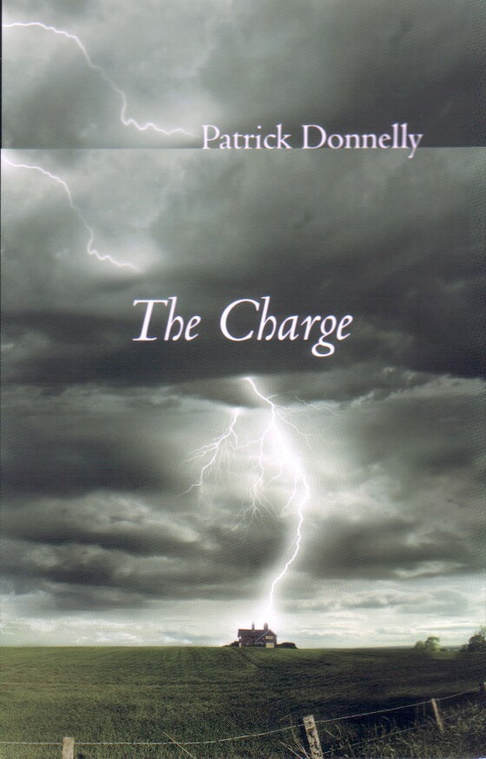The Charge (Ausable Press, 2003, since 2009 a part of Copper Canyon Press) is available from the Copper Canyon Press website, Amazon.com, and your local bookseller. (2004 finalist for The Publishing Triangle Award for Gay Male Poetry)
“Patrick Donnelly’s amazing book The Charge has something to do with electricity, with the intensity of lucid, urgent speech lighting up parts of our hearts and brains as poems are supposed to do, but it also has to do with a charge Donnelly has been given: a spiritual mission. This charge is to bear testimony to the realities, tensions, and intensities of living in his particular world and knowing that world must be transformed in order to reveal its spiritual significance. He reminds me, in this project, of Whitman, another passionate denizen of the Brooklyn that Donnelly hymns and inhabits. Donnelly has Whitman’s tenderness and that empathy for others Whitman counseled us to cherish as intensely as we cherished our carnal self-delight. I hear, throughout these poems, the gospels of passion and compassion. I hear an erotic humor Whitman would have aspired to had he been as free in body as he was in spirit. Donnelly writes of Eros and AIDS, grief and rage—and everything he writes is suffused with tenderness and intelligence, lucidity and courage. It is a book full of psalms of gratitude, and it is also a book bursting with prayers, many of them anguished. Are they answered? They are, as the best poems must be, their own answer, the answer of love.”
—Gregory Orr
“Patrick Donnelly’s amazing book The Charge has something to do with electricity, with the intensity of lucid, urgent speech lighting up parts of our hearts and brains as poems are supposed to do, but it also has to do with a charge Donnelly has been given: a spiritual mission. This charge is to bear testimony to the realities, tensions, and intensities of living in his particular world and knowing that world must be transformed in order to reveal its spiritual significance. He reminds me, in this project, of Whitman, another passionate denizen of the Brooklyn that Donnelly hymns and inhabits. Donnelly has Whitman’s tenderness and that empathy for others Whitman counseled us to cherish as intensely as we cherished our carnal self-delight. I hear, throughout these poems, the gospels of passion and compassion. I hear an erotic humor Whitman would have aspired to had he been as free in body as he was in spirit. Donnelly writes of Eros and AIDS, grief and rage—and everything he writes is suffused with tenderness and intelligence, lucidity and courage. It is a book full of psalms of gratitude, and it is also a book bursting with prayers, many of them anguished. Are they answered? They are, as the best poems must be, their own answer, the answer of love.”
—Gregory Orr
